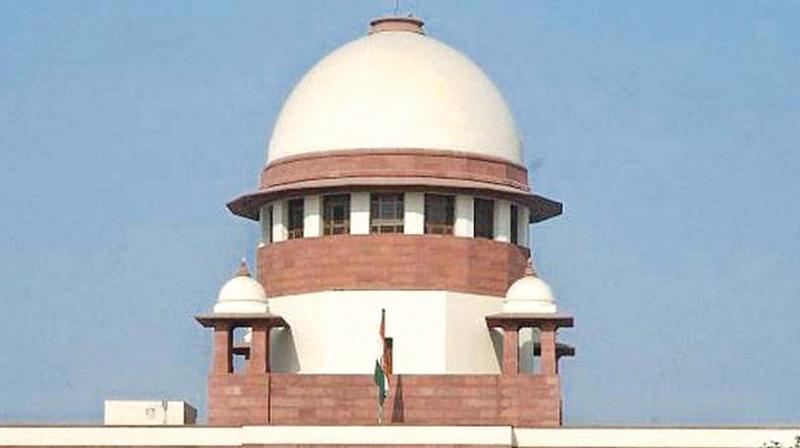Supreme Court to examine legality of incentive marks
The petitioners are free to make a mention on Monday, the 16th April before the Chief Justice of India.

New Delhi: A five judge Constitution Bench of the Supreme Court will examine whether States can provide incentive marks for doctors working in remote/hill areas for admission to post graduate medical courses.
A three-judge Bench of Justices Kurian Joseph, M.M. Shantanagouder and Navin Sinha on Friday referred to the Chief Justice Dipak Misra a batch of petitions filed by Tamil Nadu Medical Doctors Association and others for adjudication by a larger bench.
The petitions challenged the validity of Regulation 9(4) and (8) of the Post Graduate Medical Education Regulations, which provide for such reservation to in-service doctors. An incentive upto 10 per cent of the marks obtained for each year of service in remote and/or difficult areas or Rural areas upto maximum of 30 per cent of the marks obtained in National Eligibility-cum Entrance Test are provided to such candidates.
The main dispute pertains to the claim made by the State for reservation in favour of the in-service candidates in respect of 50 per cent of the seats granted to the States, since 50 per cent of the seats, in any case are set apart for All-India category.It was pointed out that the States have been following, for several reasons and for several years, the pattern of reservation in respect of 50 per cent of State Quota for the in-service candidates. Even in that 50 per cent, the list can be prepared by providing the incentive for the service in difficult, rural or remote areas.
It was also pointed out that the Regulations are ultra vires the Constitution as they discriminate between doctors working in cities and those working in remote areas and this classification is impermissible in law. They sought quashing of the regulations and an interim stay so that admission could be made only on the basis of NEET marks.
On behalf of the States and Centre justified the Regulations and pointed out that the apex court had earlier upheld such incentive marks being granted to in-service doctors. Justice Kurian Bench in a brief referral order said considering the importance of the issue, the matter has to be decided by a larger bench, particularly when it is pointed out that the earlier verdicts had not been properly considered.
Having regard to the entire facts and circumstances of the case, the Bench said, “we feel it is appropriate that even the interim relief should be considered by the larger Bench. 16. Accordingly, place the matters before the Chief Justice of India for consideration by a larger Bench, emergently. The petitioners are free to make a mention on Monday, the 16th April before the Chief Justice of India.”

